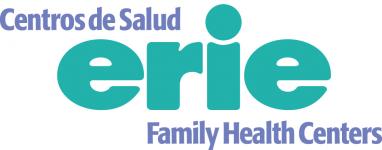The story of Erie Family Health Centers began in 1957 with a compassionate physician and an elderly patient in need of health care. The physician was Dr. Robert Snyder, an internist at Northwestern Memorial Hospital, and his patient was Carmela Jacob.
Carmela, a long-time resident of Chicago's West Town community, was frustrated by the problems that she and other West Town residents encounterd when they tried to obtain health care services. Recognizing an unmet need in the community, Dr. Snyder began providing onsite medical care for senior citizens at Erie Neighborhood House, a community center for immigrants in West Town -- and Erie Family Health Centers was born.
With the assistance of Northwestern University Medical students and community voluinteers, the clinic began provideing geriatric health care services two evenings a week. Over the next 10 years, Northwestern medical students expressed a growing interest in staffing a student-run clinic to provide community-based medical services for low-income families. This dream was realized in 1968, when Erie expanded its ervices to serve low-income children and adults.
By 1970 Erie had evolved into a full-service community health center and was officialy incorporated as a seprate entity from Erie Neighborhood House. The 1980s brought more grwoth and chnage: the Erie Senior Health Center was established on-site at a high-rise apartment complex for seniors. And the Erie Teen Health Center was converted from a makeshift clinic in an apartment to a full-fledged clinic in 1985.
In 1986, our original health center moved from Erie Street to Chicago Avenue and Erie also established the full-service Humboldt Park Health Center. In 1988 Chicago's Mayor declared October 6 "Erie Family Health Center Day" in recognition of Erie's contributions to the health and well-being of Chicago's medically underserved communities. (And in 2017 on our 60th Anniversary, the mayors of Evanston, Skokie and Waukegan all also made October 6 Erie FamilyHealth Center Day!)
As the years passed, the number of patienst in need of comprehensive, culturally-sensitive health care services continued to increase. By 1987 our West Town site was serving more than 2,000 patients perr month.
Today, Erie is a regional health resource serving nearly 73,000 medical patients and 12,500 dental pationts, via over 350,000 annual patient encounters, at 13 health centers spanning the west side of Chicago to Waukegan. These sites include four large primary care centers that offer integrated medical and dental health services, three additional large priomary care centers, the region's oldest and most comprehensive teen and young adult health center and five school-based health centers.
Although 63 years have passed since Dr. Snyder first began providing medical care for West Town's elderly, our mission remains the same: "Motivated by the belief that healthcare is a human right, we provide high quality, affordable care to support healthier people, families and communities." Erie continues to provide care and create programs based on the needs expressed by community members. And we operate in collaboration with the community and our hospital and other partners to ensure these needs are met, carrying on the legacy started by our founders.
The people we serve:
¦72% of Erie’s patients are Hispanic
¦47% are best served in Spanish
¦63% are female
¦47% are under the age of 18
¦30% are uninsured
The Chicagoland communities we serve:
Albany Park
Avalon Park
Avondale
Belmont Cragin
Brighton Park
Dunning
Edgewater
Evanston
Garfield Ridge
Hermosa
Humboldt Park
Irving Park
Jefferson Park
Lake View
Lincoln Square
Logan Square
Montclare
Near West Side
North Center
North Chicago
North Lawndale
North Park
Portage Park
Rogers Park
Skokie
Uptown
Waukegan
West Elsdon
West Garfield
West Lawn
West Ridge
West Town
Zion





